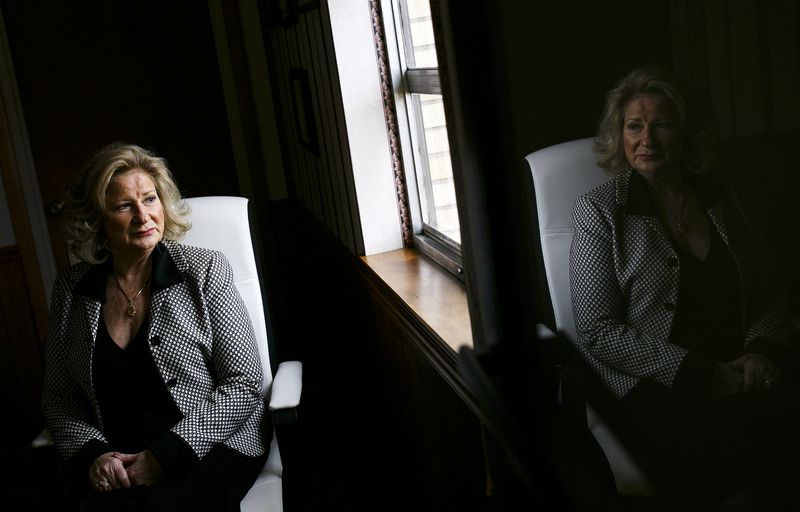She couldn’t save her son. Now, she wants to help others who’ve lost someone to substance abuse


Her first email arrived at the newspaper a year ago — a bone-weary mother reaching out, looking for advice columns for people like her, whose kids are addicted to drugs or alcohol.
“We as parents are clueless what to do or who to go to for support,” Dona Overstreet wrote. “We ask ourselves all the time what did we do to cause this and what could we have done to prevent it?”
Last week, Overstreet sat in a Starbucks near Military Circle, sharing her family’s struggle with a reporter — a story she was once too embarrassed to tell.
“People are quick to judge,” she said. “On the outside, we were the model suburban family. Nice house in Chesapeake. Good jobs. Two kids. I was even the PTA treasurer.”
Appearances no longer matter. She doesn’t care if the customers filtering in and out of the coffee shop notice her tears or hear what she’s saying. She hopes they do. The only thing left — the only thing that seems truly important — is finding a way to help others who are grappling with this same grief.
"No matter what we did, we just couldn’t save him,” she said of Alex, who died at 32 after spending half his life battling substance abuse. “Now we have to go on.”
Overstreet says her daughter, Rachel — two years younger than her son — has never had Alex’s problem. His started in ninth grade at Hickory High School, when a friend gave him some Adderall, a drug widely prescribed for attention deficit disorder.
“His grades had been slipping and then suddenly they jumped back up,” she said. “We thought he’d just gotten a handle on it, but then he told us about the Adderall. So we thought, huh, maybe he needs that to focus. We took him to a doctor and got his own prescription. It seemed like the acceptable thing to do.”
“We didn’t realize it was addiction,” she said. “We thought he was having behavioral issues — a phase that would pass.”
“My son was always kind, except when he was drunk — then he could be really nasty. He’d vomit on the floor and not even clean it up. The only time he seemed regretful was when he’d see me cry.”
Alex started stealing from his family — money from his mom’s purse, items from the house to pawn — while his parents slept or went to work. When he was 18, he swiped his mother’s Suburban and rear-ended another car.
The cycle became a blur, played out over years. Eight rehabs. Thousands of dollars spent for therapy and treatments. Periods of relative stability and hope that would always shatter. One substance defeated, then simply replaced by another, like opioids.
In courthouses across the land, prosecutors find themselves dropping cases midstream because an addicted defendant died — overdosed between arrest and trial.
Legal problems are stressful for anyone, said Colin Stolle, the Virginia Beach commonwealth’s attorney, but they can leave addicts feeling especially desperate.
Nancy Parr, the Chesapeake commonwealth’s attorney, said she noticed the correlation several years ago and started matching autopsy reports with court cases.
Overstreet tried tough love. When Alex got kicked out of a halfway house in Wilmington, N.C., for drinking mouthwash, she left him on the streets there for weeks — the first of several times she would let him be homeless. When he threatened to jump out of her car as she was speeding up the highway to yet another rehab, she told him to go ahead.
Throughout her son’s troubles, Overstreet logged countless hours of her own in counseling sessions and support groups. But after his death, she said, she couldn’t find a group in the area dedicated to this particular kind of loss, a place for people who’ve known her helplessness and frustration, sorrow and exhaustion.
 Pathways Drug Rehabilitation Luxury Addiction Treatment & Detox Center
Pathways Drug Rehabilitation Luxury Addiction Treatment & Detox Center


